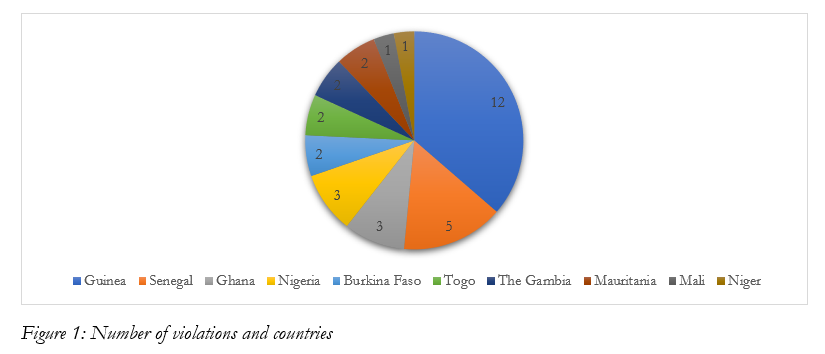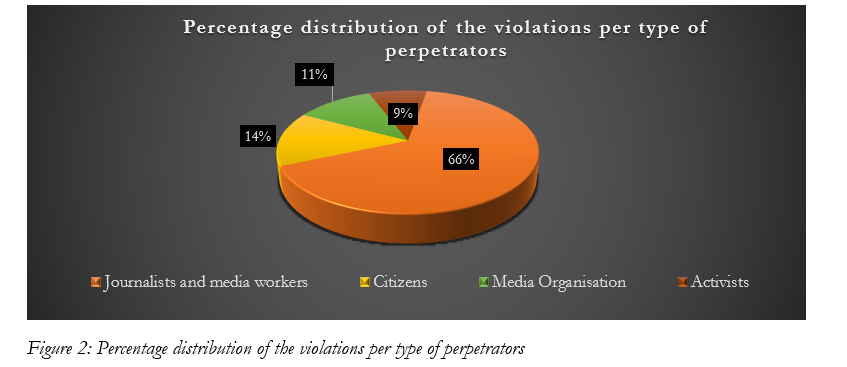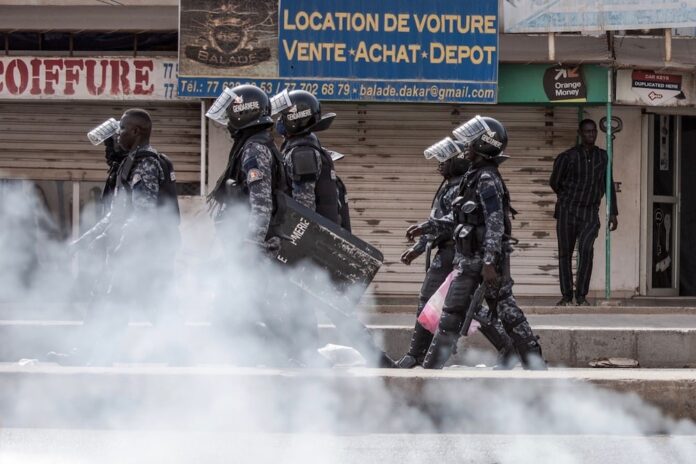Guinea recorded twelve (12) violations to emerge as the country with the worst freedom of expression (FOE) record in the second half of 2023. Senegal followed closely with five (5) violations, mostly linked to the rumpus around the prosecution of opposition leader Ousmane Sonko.
Ghana and Nigeria recorded three (3) violations each. Burkina Faso, Togo, The Gambia, and Mauritania reported two (2) violations each, while Mali, Niger, Liberia, and Benin recorded one (1) violation each.
During the period from April to June 2023, a total of thirty-five (35) incidents of freedom of expression violations were recorded, compared to the preceding quarter (January-March 2023), which saw 55 violations. This represents a significant decline of thirty-six percent (36%) in the number of violations.

The second quarter was marred by a series of arrests and detentions, restrictions on social media and the internet, as well as physical attacks on journalists and media professionals. A total of 18 journalists fell victim to these violations. Guinea led the charge against journalists with 12 recorded violations. These incidents included physical assaults, arrests, and detentions. Media organizations were not spared either; on May 18, 2023, gendarmes from the telecommunications regulatory authority (ARPT) allegedly stormed the headquarters of the Afric Vision press group in Conakry, the capital of Guinea. The attackers dismantled and confiscated transmitters from two radio stations.
Senegal experienced violent clashes and a shutdown of the internet, together with a pro-opposition TV station, while nine protesters were killed by security forces, following the conviction of opposition leader Ousmane Sonko on June 1, 2023.
In Nigeria, Niger, Benin, and Mali, at least three journalists and activists were arrested or sentenced over comments they made online. The authorities cited existing cybercrime laws to suppress dissenting voices, raising concerns about the instrumentalization of such laws.
In terms of distribution, twenty-three (23) of the violations targeted journalists and media workers, while five (5) were aimed at citizens. Four (4) violations were directed at media organizations and three (3) activists.

The second quarter report also features other important freedom of expression and digital rights developments in the region, including redresses for violations and recommendations to key stakeholders.
Access the full report here.
